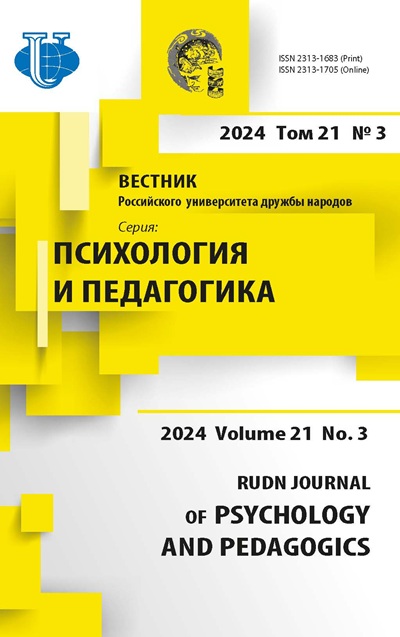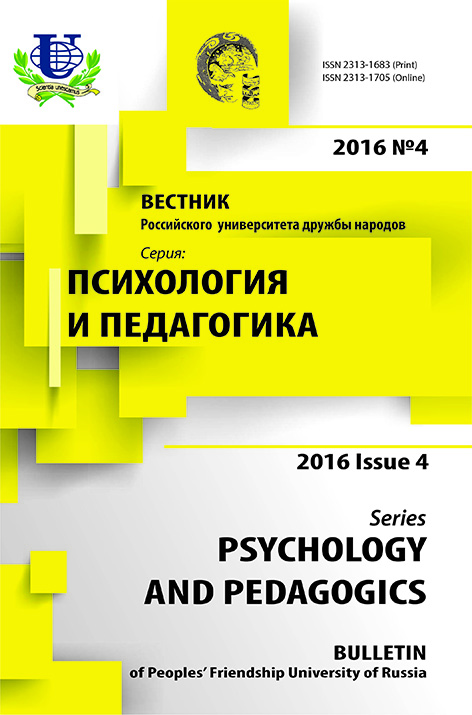Abstract
The self-regulation is considered by the author as a general ability of the person. The levels of self-regulation relating to any professional activity, and corresponding to these levels self-regulatory capacities are distinguished: 1) psychophysiological - the ability for self-regulation of emotional and psycho- physiological states; 2) socio-psychological - the ability for self-regulation in the process of social interaction; 3) psychological (the ability to regulate activities; the capacity for personal self-control);spiritual - the highest capacity for self-regulation due to the higher values and meanings of existence. Self-regulation at the highest spiritual level is considered in this research in connection with the actualization of higher self-regulatory capacities, leading to self-realization of the person including professional activity. Processes, levels, components of self-regulation, associated with different conditions of professional activities (for example, in extreme situations), as well as with different types of professions (teachers, sales managers, etc.) are described. A particular attention is given to self- regulation in the teaching activities: levels, techniques of teachers’ self-regulatory skills are presented; the importance of teachers’ personal self-regulation is emphasized, because it determines self-development, self-improvement and self-fulfillment in their chosen profession, and is associated with the manifestation of higher self-regulatory capacities. It is noted that in the process of professional activities different levels and types of self-regulation are demanded. The self-regulation in professional activities is carried out due to various self-regulatory capabilities - from simple to complex, including the highest.
















